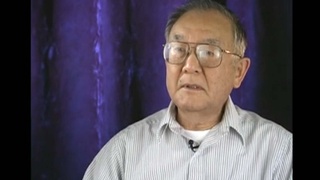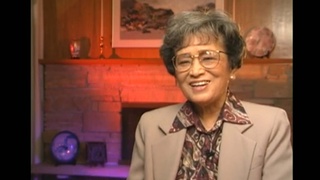Interviews
Growth in Numbers
We had meetings, and before, we used to have maybe four or five people at the meeting or six people at a meeting, now we're getting fifteen, twenty people at a meeting. And they all wanted to voice their opinion about certain things and what the strategy should be and so forth, which was very good, that's what we wanted. We wanted input from the community. And we were getting an ear full. And they made sure that we're gonna toe the line that we have talked about.
And I mean, when we had the Day of Remembrance program, when we had program like that, fifty people showed up, but after the hearing, 200, 300 people showing up for the program, so it was a big difference before the hearing and after the hearing.
So the movement was there already, I mean, it's started and the environment was there, the leaders can talk within the environment. Without that environment, they were scared to open their mouth about redress because they are afraid of people criticizing them. But with the kind of environment that we created and the hearings created, they felt comfortable working in the redress movement.
Date: September 13, 1997
Location: California, US
Interviewer: Larry Hashima
Contributed by: Denshō: The Japanese American Legacy Project.






